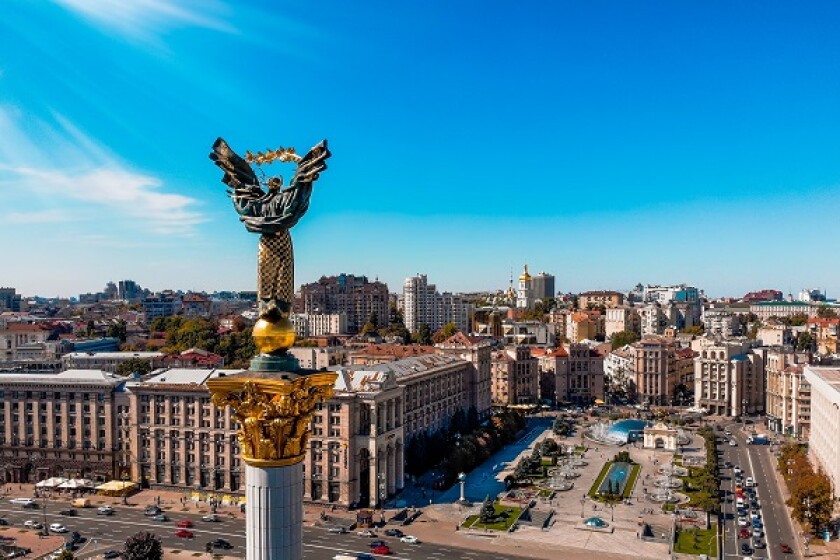Companies facing a global supply chain crisis, coupled with rising inflation, have seen these problems made much worse by the Russia-Ukraine war. Its impact has rippled through global energy markets. Europe was already facing a gas crisis before the war started, and this is only getting more severe.
Many governments have turned to cutting indirect taxes, particularly fuel duty and VAT on energy, to alleviate the cost of living crisis. Meanwhile, US and European brands, including Coca-Cola, McDonald’s and Starbucks, have exited the Russian in protest.
The Russian government has responded with its own sanctions and even seized the intellectual property (IP) of foreign multinational companies leaving the country.
Businesses leaving Russia have had to factor in this risk as part of their transfer pricing (TP) policies, while also planning for greater uncertainty over benchmark data. There has been little data certainty because of COVID-19, but the war means there will be no return to normality for some time.
The war continues to exact a terrible human cost and there is little sign of a peace deal, while the economic consequences are still playing out worldwide.
ITR’s coverage
ITR continues to follow the conflict’s fallout for taxpayers. Here is a selection of our analysis of the implications of the Russia-Ukraine war.
Russia’s IP threat poses TP risk for businesses
Businesses face greater uncertainty over benchmark data following the Russia-Ukraine war
The UK joins the rest of Europe in cutting fuel duty
Tensions escalate over sanctions relating to Russia-Ukraine war
Companies battle the TP implications of rising inflation
Russian aggression offers several tax lessons for governments
Russia boosts tax incentives as businesses exit the country
As our reporters provide more insight on the tax implications of the Russia-Ukraine conflict, we will continue to update the above list of stories for you.
Tax fallout
Crypto industry resists Russia ban
Tax authorities wanting to crackdown on the cryptocurrency industry may have a stronger case now that crypto exchanges have resisted calls for a trading ban on Russia amid the Ukraine war.
Trading between Bitcoin and roubles surged by 132% in the days following the Russian invasion of Ukraine, according to analysis by data company Kaiko. The biggest crypto exchanges, Binance and Coinbase, are resisting calls to impose a ban on Russian users, while stressing their support for specific sanctions.
“There are a few hundred individuals that are on the international sanctions list in Russia, mostly politicians, and we follow that very, very strictly,” said Changpeng Zhao, chief executive of Binance, in a BBC interview in March.
“We differentiate between the Russian politicians who start wars and the normal people; many normal Russians do not agree with war,” he explained. “We are not political, we are against war, but we are here to help the people.”
On the other hand, Binance began to bring its services in line with EU sanctions in April. The crypto exchange has deactivated the accounts of Russian clients and informed users that there would be a ‘ban’ on Russian clients holding more than €10,000 ($10,900) in cryptocurrencies.
Binance allowed Russian individuals and businesses to withdraw their funds. Meanwhile, Russia-linked users with holdings of less than €10,000 can continue to operate.
Russia has the third biggest crypto market in the world and the market may offer a lifeline as sanctions hit hard. Bitcoin has a market cap of $835 billion, while the rouble has a market cap of $626 billion and its value has crashed since February.
Many tax authorities have highlighted the industry as posing serious tax risks in recent years. The crypto industry is already facing crackdowns in several countries, including India, over claims such assets can be used to evade and avoid taxes. The crisis is likely to fuel calls for tougher measures.
Tax havens rattled by Russian sanctions
The Russian war on Ukraine has meant the end of the boom in Russian investments across European cities. For example, the French government has seized the assets of Russian billionaires and the Italian government has seized properties belonging to wealthy Russians.
The UK government has secured support from the three Crown dependencies and 14 overseas territories, including the British Virgin Islands (BVI), to enforce its sanctions. Russian individuals and companies have long relied on low-tax jurisdictions to do business outside of Russia.
One 2018 Global Witness report found that Russian individuals and companies had an estimated £34 billion ($45.5 billion) held in British Overseas Territories and Crown Dependencies. The same report found that the BVI was the second most popular destination for capital leaving Russia – second only to Cyprus.
The problem is that the scope of the sanctions list was initially limited. The lists included specific individuals and companies, whereas secretive low-tax jurisdictions often allow obscure forms of ownership. As a result, the identity of who owns certain entities is often unclear.
At the same time, many countries are not supporting sanctions against Russia. These jurisdictions may stand to gain from a shift in Russian investment away from the US and Europe.
Faced with US and EU sanctions, Russian multinational companies have little choice but to do business through African, Asian and Middle East jurisdictions. Russia has its own low-tax zones for businesses to retreat to, but multinational companies need to operate outside the country.
Yet there are many options for Russian businesses despite the sanctions. For example, Russian investors can turn to the United Arab Emirates for a light regulatory, low-tax jurisdiction with a growing financial sector.
As the war continues, the global economy is changing. The end result may be that Russia ends up much closer to countries outside the US and EU.










